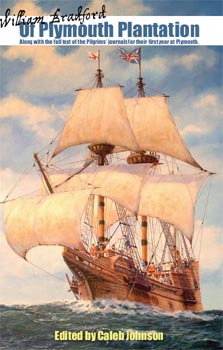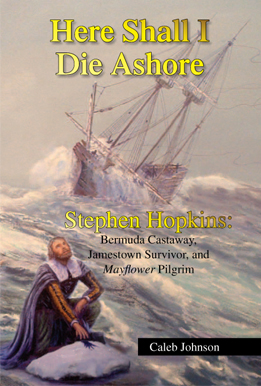John Billington
BIRTH: About 1580, likely in the vicinity of Spalding or Cowbit, Lincolnshire, England.
MARRIAGE: Eleanor, probably around 1603, likely in or around Spalding or Cowbit, Lincolnshire, England.
CHILDREN: John and Francis.
yDNA: R-M269 (R-FTA18300)
DEATH: Hanged for murder, September or October 1630, Plymouth Colony.
The Billington family appears to have originated from in or around Cowbit and Spaulding, Lincolnshire, England, where Francis Longland named Francis Billington, son of John Billington, as an heir. A manorial survey taken in 1650 indicated that Francis Billington was then in New England. Research in the records of the region has yet to turn up any additional details of the family, however.
Every community seems to have its troublemakers, and for Plymouth Colony it was the Billingtons. Shortly after arriving in Plymouth Harbor and still onboard the Mayflower, young Francis Billington got ahold of his father's musket and shot it off inside, showering sparks around an open barrel of gunpowder and nearly blowing up the ship. A few months later, in March 1621, John Billington was brought before the Company and charged with "contempt of the Captain's lawful command with opprobrious speeches," and was sentenced to have his neck and heels tied together: "but upon humbling himself and craving pardon, and it being the first offence, he is forgiven." Two months later, his son John wandered off and was taken by the Nauset to Cape Cod: Plymouth was forced to send out a party to retrieve the boy. In 1624, Billington was implicated in the Oldham-Lyford scandal, which was a failed revolt against the authority of the Plymouth church--but he played ignorant of the plot and was never officially punished. In 1625, William Bradford wrote a letter to Robert Cushman saying "Billington still rails against you, ... he is a knave, and so will live and die."
In 1630, John Billington shot and killed John Newcomen, over an old quarrel, they having been enemies for some time. Billington was tried by jury, and sentenced to death by hanging, which was carried out in September or October 1630. Billington's wife was sentenced by the Plymouth Court in 1636 to sit in the stocks and to be whipped for a slander against John Doane.



